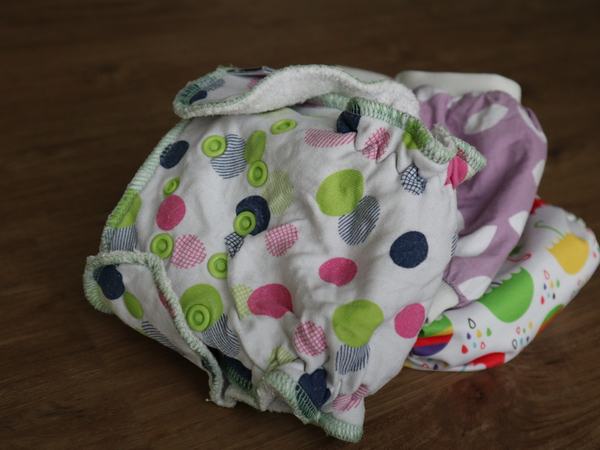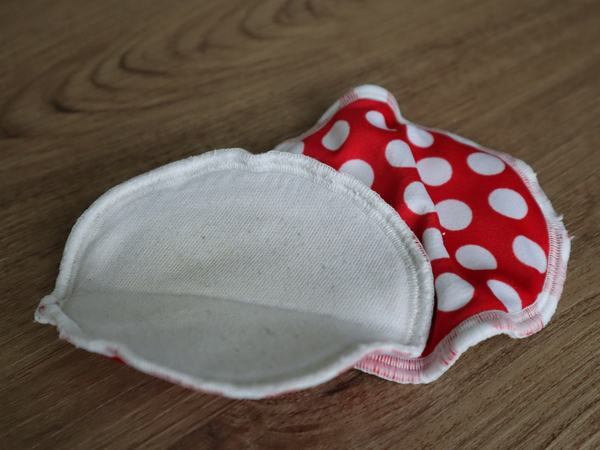10 tips for more sustainability with baby
Congratulations on your baby! As new parents, you definitely want the best for your child, but at the same time, you want to leave behind a world worth living in. In this article, I want to give you 10 tips on how to live more sustainably with your baby.
Tip 1: Sustainable diapers
Did you know that disposable diapers create a tremendous amount of waste and consume resources? After all, one child needs about 5000-6000 diapers for the entire diapering period! Cloth diapers are a great alternative. These consist of an absorbent fabric and a wetness protector. They are simply washed at 60 degrees and reused.

They are also a lot cheaper than disposable diapers and can be used for up to 4 children. If you don't want to switch completely to cloth diapers, you can use eco diapers on the go, for example.
The most environmentally friendly way to diaper your baby is the so-called elimination communication.
Tip 2: Reusable wet wipes
Wet wipes are often made of plastic and are not biodegradable. Washcloths and a bowl of lukewarm water are best. If you're on the go, you can also use homemade wet wipes made from old t-shirts or bedsheets. Just soak them in water with olive or coconut oil, squeeze them out and take them with you in a canning jar.
Tip 3: Natural care products
Many baby care products are superfluous and contain unnecessary chemicals. Less is often more, usually water and a high quality organic oil like olive oil is enough. You can even use breast milk as a bath additive. If you do want to use care products, look for natural cosmetics.
Tip 4: Cook your own baby food
Cooking your own baby food is not only healthier, but also more sustainable. You can cook and puree vegetables and fruits with water, freeze them and defrost them in portions. You can also simply puree components of your own dish or offer them as finger foods. If you're in a hurry, there are also regional organic jars as an alternative.
Tip 5: Secondhand baby clothes
Baby clothes are often only worn for a short time and are therefore ideal to buy secondhand. Look at flea markets, secondhand stores or ask friends and family. It not only saves money, but also saves resources and is better for the environment. If you do want to buy something new, look for fairly produced and organic clothing.
Tip 6: Toys - less is more
Babies don't need a lot of toys to be happy. In the beginning, they often play with everyday objects, like a spoon. If you're going to buy toys, go for durable and eco-friendly materials like wood.
Wooden toys are free of harmful substances, unlike plastic toys, and usually last longer. Look for the "Blue Angel" or the FSC seal. If you don't want to buy a new toy, you can borrow, trade, buy used or even rent them.
Tip 7: Second-hand equipment
Not only clothes, but also equipment and furniture for babies can be bought second-hand. Used strollers, cribs, changing tables or car seats are often cheaper and just as functional as new products.
However, if you want to buy something new, you should go for solid wood for furniture, as it is more durable. Furniture that can grow or be repurposed is also a sustainable option. For example, the crib can be turned into a shelf or desk. It doesn't have to be a special changing table either, a changing top for a regular dresser is just as good.
Tip 8: Environmentally friendly washing
Having a baby adds quite a bit of extra laundry. But here, too, there are ways to be more sustainable.
Basically, wash at 30 degrees and about every two weeks at 60 degrees to keep the washing machine hygienic. However, you should always wash cloth diapers and washable wet wipes at 60 degrees. Between washes, leave the machine door open to dry and clean the detergent drawer, lint filter and rubber seal regularly.
Use ecological detergents, which are kinder to the environment. Also, you should only wash baby clothes when they are really dirty and not every time after wearing them.
Tip 9: Do without certain gifts
It is common for friends and relatives to shower the baby with gifts. But often there is also a lot that you yourself would perhaps never buy or what the baby does not even need.
Therefore, ask your friends and relatives not to give anything or only second-hand gifts. You can also explicitly wish for something that you actually need.
Tip 10: Washable nursing pads
Breastfeeding is the most environmentally friendly way to feed your baby. However, you may not want to or it may not work for you. However, if you are breastfeeding, you should go for washable nursing pads instead of disposable ones.

Conclusion
There are many small steps you can implement in your everyday life to live more sustainably and thus contribute to our and your baby's future.
Think about which tips are most feasible for you and your baby and slowly start to integrate them into your everyday life. Every little step counts and helps make our world a better place.